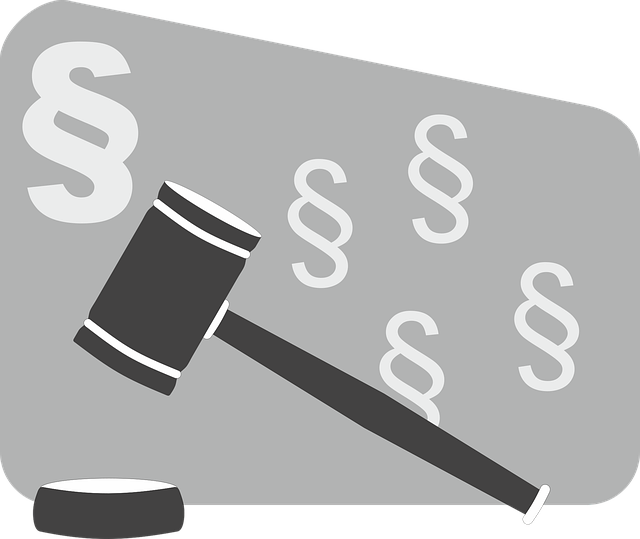Sophisticated fraud schemes, including Ponzi schemes and complex accounting frauds, pose significant risks to investors and businesses. Recent years have seen a surge in Recent Class Action Lawsuits in Civil Law targeting fraudulent financial practices, with these collective actions uncovering and deterring high-profile scandals like Enron and Bernie Madoff's schemes. The digital era has brought new complexities but also empowered individuals to combat corporate misconduct through Recent Class Action Lawsuits in Civil Law, enhancing consumer protection and promoting ethical corporate conduct.
In the dynamic landscape of finance, fraudulent practices pose a persistent threat to consumers. This article delves into the intricate world of financial fraud, exploring common schemes plaguing the industry. We analyze the surge in recent class action lawsuits in civil law targeting fraudulent activities, examining notable cases that have reshaped legal defenses. By dissecting these tactics and their legal implications, we aim to equip readers with insights into consumer protection measures against evolving financial scams.
- Unveiling Common Fraud Schemes in Finance
- Class Action Lawsuits: A Rising Trend
- Case Studies: Recent High-Profile Scandals
- Legal Implications and Consumer Protection
Unveiling Common Fraud Schemes in Finance

In the realm of finance, fraudulent practices have evolved into intricate schemes, often leaving corporate and individual clients vulnerable. Recent trends reveal a surge in complex frauds, from investment scams to accounting manipulizations. By understanding these common strategies, investors and businesses can better protect themselves. One notable pattern involves sophisticated Ponzi schemes, where initial investments are used to pay off later investors, creating the illusion of consistent returns. These schemes have achieved extraordinary results in manipulating markets across the country.
Furthermore, white-collar crimes often involve elaborate accounting frauds, where fraudulent transactions are disguised within complex financial structures. As seen in several high-profile cases and recent class action lawsuits in civil law, these practices can go undetected for extended periods, causing significant economic harm. With each revelation, regulators and legal professionals work tirelessly to combat these schemes, ensuring accountability and justice for affected parties.
Class Action Lawsuits: A Rising Trend

In recent years, a notable trend has emerged in the realm of civil law: the surge in class action lawsuits targeting fraudulent financial practices. These collective legal actions have become a powerful tool for holding corporations and individuals accountable for their illicit financial activities. By banding together, victims can pool resources and expertise to take on powerful entities that might otherwise avoid indictment through individual suits. This strategic approach not only provides justice for those directly harmed but also sends a strong message throughout the philanthropic and political communities about the consequences of unethical behavior.
Recent Class Action Lawsuits in Civil Law have been particularly effective in uncovering complex schemes, such as investment fraud and money laundering. As these cases gain traction, they inspire greater vigilance among regulators and law enforcement agencies, fostering an environment where transparency and integrity are prioritized over fraudulent practices. The impact extends beyond monetary compensation; it reshapes corporate governance and encourages ethical conduct within the financial sector, ultimately strengthening the fabric of trust between businesses and their clients.
Case Studies: Recent High-Profile Scandals

In recent years, a wave of high-profile financial scandals has shaken public trust and led to significant legal repercussions. These cases, often involving sophisticated white collar and economic crimes, have resulted in massive losses for investors and unprecedented track records for those held accountable. For instance, the 2020 Enron scandal, one of the most notorious recent examples, saw the energy company’s executives manipulate financial statements, leading to a $7 billion debacle and subsequent Class Action Lawsuits in Civil Law.
Another notable case is that of Bernie Madoff, who orchestrated one of history’s largest Ponzi schemes, defrauding thousands of investors out of an estimated $65 billion. These dramatic events have not only underscored the severity of fraudulent financial practices but also prompted stronger regulatory measures and enhanced legal protections for investors. The unprecedented scale and impact of these scandals highlight the need for robust legal responses and underscore the dedication of lawyers specializing in civil law to secure justice for affected parties.
Legal Implications and Consumer Protection

The legal implications of fraudulent financial practices are vast and complex, especially with the evolving nature of financial crimes in today’s digital age. Recent Class Action Lawsuits in Civil Law have become a powerful tool for consumer protection, allowing individuals to join forces and seek collective redress against corporations engaging in deceptive or illegal activities. These lawsuits not only hold accountable those responsible for fraudulent schemes but also serve as a deterrent, potentially leading to winning challenging defense verdicts.
In the realm of white-collar crime, both corporate and individual clients can face severe consequences. Prosecutors are increasingly focusing on holding businesses and their leaders liable for financial fraud, with penalties that include substantial fines and potential jail time. Consumer protection laws play a crucial role in this narrative by empowering individuals to take legal action, ensuring that corporations operate ethically and transparently.
In light of the above discussions, it’s clear that fraudulent financial practices pose significant threats to consumers. Unveiling common schemes, understanding the rising trend of class action lawsuits, and studying recent high-profile scandals are crucial steps towards enhancing consumer protection. As seen in recent civil law cases, collective action has proven effective in holding wrongdoers accountable. However, continuous education, robust regulatory frameworks, and proactive legal implications remain essential to navigate this evolving landscape and safeguard financial integrity for all.






